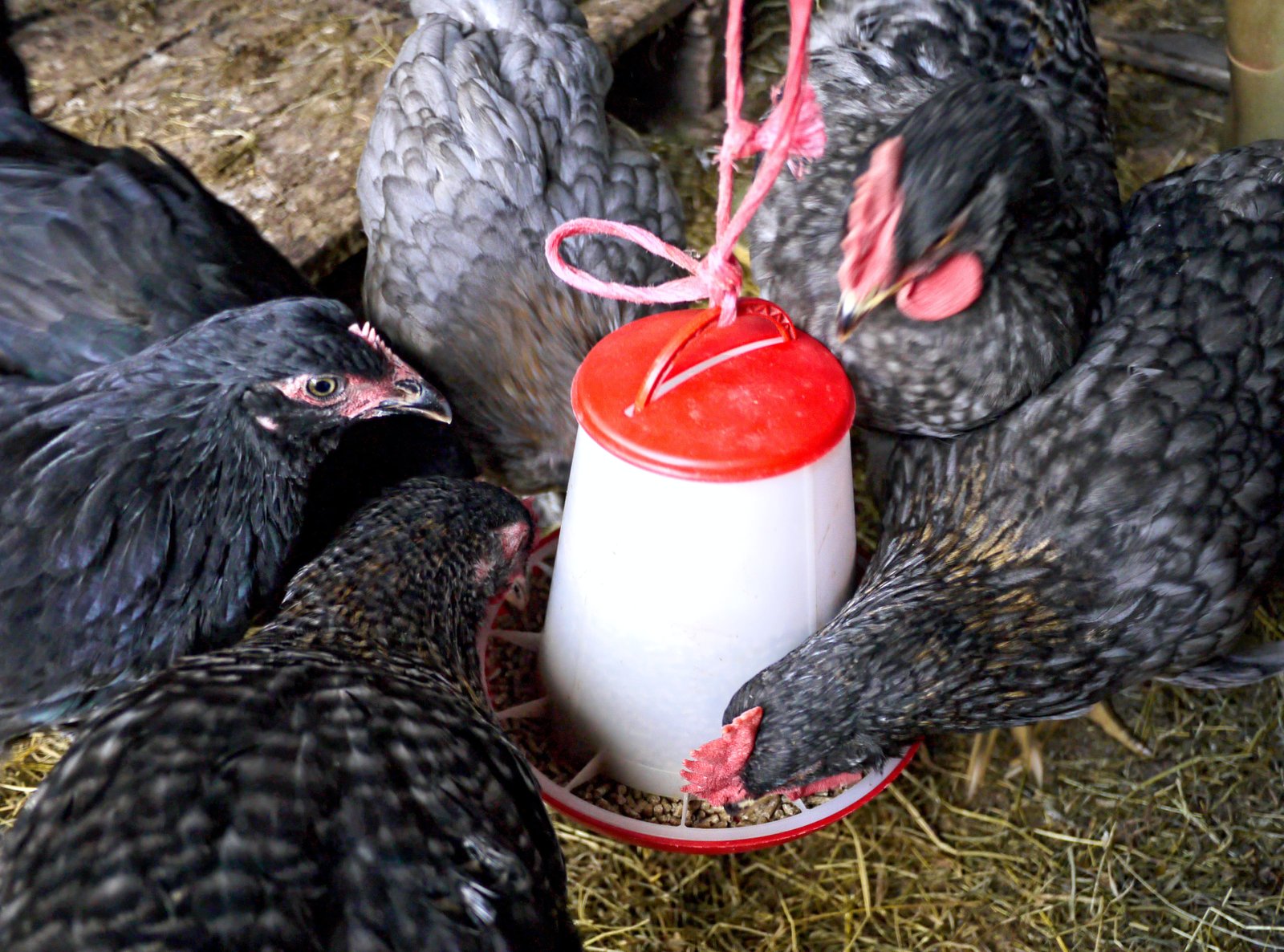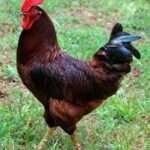Raising chickens in small backyards has become a popular trend among urban and suburban dwellers seeking a sustainable and rewarding lifestyle. The idea of having fresh eggs, reducing organic waste, and enjoying the companionship of friendly feathered friends is undeniably appealing. However, when it comes to keeping chickens in limited spaces, choosing the best chicken breeds for a small backyard becomes paramount for a successful and enjoyable experience.
In this comprehensive guide, we will explore the best chicken breeds that are well-suited for small backyard setups. We will consider essential factors such as size, temperament, and egg-laying capabilities to ensure you make an informed decision that fits your unique space and preferences. Additionally, we’ll discuss considerations for determining the number of chickens per square area, essential equipment for small coops, and even how to integrate chickens into your backyard garden. Whether you have a cozy urban balcony or a compact suburban yard, this guide will help you create a thriving and harmonious flock in even the tiniest of spaces.
Benefits of Raising Chickens in Small Backyards
Before diving into the world of chicken breeds, let’s first explore the numerous advantages of raising chickens in small backyards:
- Sustainability and Self-Sufficiency: Keeping chickens allows you to produce your own fresh eggs, reducing your reliance on store-bought options. Additionally, chickens are fantastic at turning kitchen scraps into nutrient-rich compost, contributing to your garden’s health and reducing waste.
- Eco-Friendly Pest Control: Chickens are natural insect hunters, making them great allies for controlling garden pests in small backyard settings. They’ll happily peck and scratch away at unwanted bugs, reducing the need for harmful chemical pesticides.
- Educational Opportunities: For families with children, raising chickens offers invaluable educational experiences. Kids learn about responsibility, animal care, and the fascinating life cycle of chickens from eggs to adults.
- Stress Relief and Connection to Nature: Chickens are known for their calming presence, providing stress relief and a sense of connection to nature, even in busy urban environments.
- Fertilizer Production: Chicken manure is a rich source of nitrogen and other essential nutrients for your garden. By letting your chickens free-range or using their droppings in compost, you can improve soil fertility naturally.
Considerations for Small Backyard Chicken Keeping
Before bringing chickens into your small backyard, it’s crucial to consider some essential factors to ensure the well-being of your feathered friends and the success of your endeavor:
- Space Planning and Number of Chickens Per Square Area: In small backyards, space is at a premium, so it’s essential to plan wisely. Determine the maximum number of chickens suitable for your available space. As a general guideline, allow at least 2-3 square feet per chicken inside the coop and 8-10 square feet per chicken in an outdoor run.
- Coop and Run Sizing: Compact coops are essential for small backyards. Consider a coop design that maximizes vertical space to accommodate roosts and nesting boxes while keeping the footprint as small as possible. For the outdoor run, opt for an enclosed area that provides enough space for your chickens to roam safely.
- Efficient Coop Design: Opt for space-saving features such as roll-out nest boxes to maximize interior space and ease egg collection. A well-ventilated coop is crucial for good air circulation and to prevent moisture buildup.
- Predator Protection: Even in urban settings, predators like raccoons, foxes, and neighborhood cats can pose a threat to your chickens. Ensure your coop and run have secure latches and sturdy fencing to keep them safe.
- City and Homeowner Association Regulations: Check local city ordinances and homeowner association rules to ensure chickens are allowed in your area. Be aware of any restrictions on the number of chickens or coop placement.

Essential Equipment for Small Backyard Chicken Coops
Equipping your small backyard coop with the right essentials ensures the comfort and well-being of your feathered friends:
- Compact Feeders and Waterers: Choose feeders and waterers suitable for limited space. Hanging or wall-mounted feeders are great space-saving options.
- Nesting Boxes: Opt for space-efficient nesting boxes that allow easy access for egg collection. Consider roll-out nest boxes to keep eggs clean and prevent egg-eating.
- Roosts: Provide enough roosting space for your chickens to perch comfortably at night. Round roosts are better for their feet than narrow ones.
- Proper Ventilation and Lighting: Ensure proper ventilation in the coop to prevent moisture buildup and ammonia odors. Natural light is ideal, but if needed, consider installing LED lights on timers to regulate day and night cycles.
- Bedding Material: Use appropriate bedding material like straw or pine shavings to keep the coop clean and comfortable for your chickens.
Choosing the Best Chicken Breeds for Small Backyards
When it comes to selecting chicken breeds for your small backyard, certain characteristics make some breeds better suited than others. Consider these factors when choosing the perfect chickens for your limited space:
- Temperament: Friendly and docile breeds are usually the best choice for small backyards, especially if you have children or neighbors in close proximity. Calm chickens are more likely to adapt well to confined spaces and coexist harmoniously with each other.
- Size: Opt for breeds that are smaller in size as they require less space to move around comfortably. Compact breeds are also less likely to cause damage to garden beds and landscaping in small backyard areas.
- Egg-Laying Capacity: If you prioritize a steady supply of fresh eggs, select breeds known for their prolific egg-laying capabilities. High egg production ensures you make the most of the limited space available.

Bantam Breeds for Small Backyards
Bantam chickens, often referred to as the “miniature chickens,” are an excellent choice of best chicken breeds for small backyards. These tiny chickens have all the charm and personality of their standard-sized counterparts but require significantly less space. Bantams are known for their friendly and docile nature, making them wonderful pets for families with children.
- Silkies: Silkies are incredibly popular bantam chickens known for their fluffy appearance and gentle temperament. They are often called “lap chickens” because of their fondness for human interaction. Silkies are great brooders, making them an ideal choice if you plan to hatch your own chicks. With their small size and easygoing personality, Silkies fit seamlessly into any small backyard flock.
- Mille Fleur d’Uccle: Mille Fleur d’Uccle bantams are known for their beautiful feather patterns and friendly demeanor. These petite chickens are highly adaptable to confinement and can thrive in compact coops. Despite their diminutive size, Mille Fleur d’Uccle hens are excellent layers of small cream-colored eggs.
- Porcelain d’Uccle: Similar to the Mille Fleur d’Uccle, Porcelain d’Uccle bantams boast striking feather patterns and a calm personality. These tiny chickens are well-suited for urban or suburban settings and are known for their broody tendencies, making them exceptional mothers if you want to experience hatching chicks in your small backyard.
Dual-Purpose Breeds with Small-Footprint
For small backyards that can accommodate slightly larger chickens, consider dual-purpose breeds that offer both eggs and meat:
- Rhode Island Reds: Rhode Island Reds are classic backyard chickens valued for their hardiness, adaptability, and excellent egg-laying capabilities. These medium-sized birds are known for their calm and friendly temperament, making them a great fit for small coops in urban or suburban environments. With their rich brown eggs, Rhode Island Reds are a popular choice for families seeking a productive and versatile backyard flock.
- Plymouth Rocks: Plymouth Rocks are dual-purpose chickens known for their gentle nature and dependable egg production. These birds are well-suited for smaller spaces and are content with confined areas as long as they have enough room to move around. Plymouth Rocks lay large brown eggs and have a robust build, making them an ideal choice for families seeking a backyard flock that can provide both eggs and meat.

Egg Color Variety for Small Backyard Flocks
Add some color to your small backyard flock with chicken breeds that lay blue, green, or speckled eggs:
- Easter Eggers: Easter Eggers are not a standardized breed but rather a mix of various breeds that carry the blue egg-laying gene. These cheerful and personable chickens are excellent additions to small backyard flocks, bringing a delightful assortment of egg colors in shades of blue, green, or even pink.
- Araucanas: Araucanas are a recognized breed known for their distinctive tufts of feathers and blue eggs. They have friendly and inquisitive personalities, making them a joy to have in any backyard setting. Araucanas are well-suited for small spaces, but they are a bit flighty, so secure fencing is essential.
Chicken-Friendly Garden Plants for Small Spaces
Integrating chickens into your small backyard garden can be a mutually beneficial experience. Chickens can help with pest control and fertilize the soil, while the garden provides them with opportunities for foraging and entertainment:
- Herbs: Herbs like basil, mint, and oregano not only provide natural health benefits to chickens but also act as pest deterrents. Chickens will enjoy nibbling on these tasty and aromatic plants.
- Greens: Grow leafy greens such as lettuce, kale, and spinach for your chickens to enjoy. These nutrient-packed greens will supplement their diet and keep them healthy.
- Fruits: Consider planting fruit-bearing shrubs or trees that can provide extra treats for your chickens. Berries and fallen fruits make excellent foraging opportunities.
- Insect-Friendly Plants: Choose plants that attract beneficial insects like ladybugs and butterflies. These insects will help control harmful pests in your garden, benefiting both your plants and chickens.
The Best Chicken Breeds for Small Backyards
Choosing the best chicken breeds for small backyards is a crucial step in creating a thriving and harmonious flock. Consider the breeds’ temperament, size, and egg-laying capabilities to ensure a successful experience in your limited space. Whether you opt for friendly bantams, dual-purpose breeds, or chickens that lay colorful eggs, there is a perfect fit for your small backyard homestead.
Remember to prioritize space planning, invest in appropriate equipment, and follow local regulations when setting up your small coop. By providing a comfortable and nurturing environment, you’ll enjoy a sustainable supply of fresh eggs, natural pest control, and the delight of tending to your feathered companions in the heart of the city or suburbs. Embrace the joy of small-scale chicken keeping and create a haven for your flock in your cozy backyard sanctuary. Happy chicken keeping!





